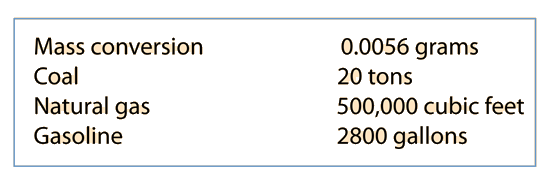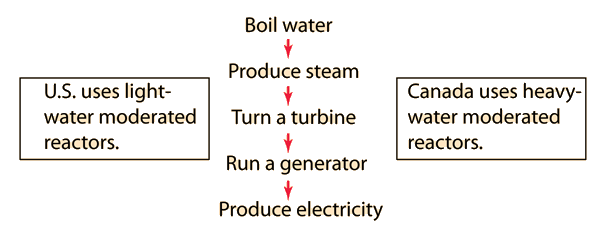How Much Fuel per U.S. Citizen?
To supply the yearly average of 5 x 1011 joules per U.S. citizen per year (used as a reference unit ) would require:

However, direct mass conversion is not possible on a large scale. A fraction of the mass can be converted to energy by:
or
Nuclear fusion: the combining of light nuclei.
Fission concepts
| HyperPhysics***** Nuclear | R Nave |
